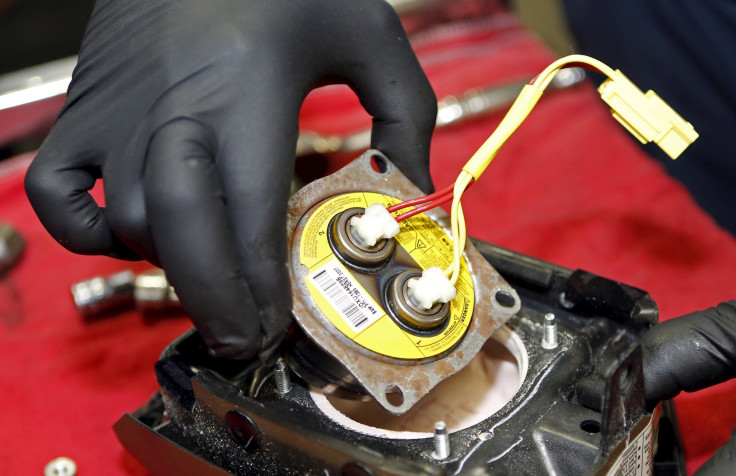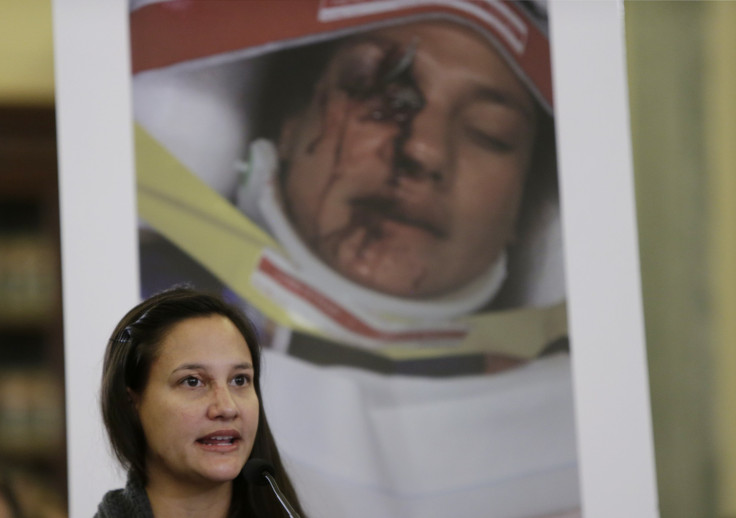Takata Inflator Linked To 10th US Victim; Teen Bled To Death At Scene Of Minor Accident

The U.S. auto safety regulator has confirmed that a high school senior bled to death recently after a light rear-end collision deployed a defective air bag inflator in her 2002 Honda Civic. Authorities say the teen has become the 10th known U.S. fatality linked to a defect at the center of one of the largest and most complicated automotive safety recalls in history.
“The victim, a 17-year-old female, died after sustaining injuries in a crash on Thursday, March 31,” the National Highway Traffic Safety Administration (NHTSA) said in a statement Wednesday after investigators inspected the vehicle in Fort Bend County, Texas, where the accident took place.
"Everybody should have walked away from this [accident]," Fort Bend County Sheriff's Deputy Danny Beckwith, told Reuters. The victim was identified only as a high school senior from Richmond, Texas, about 15 miles away from the accident scene.

According to the accident report, the teen rear-ended a Honda CR-V while traveling at the speed limit and wearing her seat belt. The collision led to modest damage to the Civic, but it triggered the defective inflator with such explosive force that shrapnel ripped through the air bag and slashed the driver’s carotid artery, killing her at the scene.
Honda says the vehicle’s owner had been sent several recall notices in accordance to federal regulations in an ongoing five-year-old attempt to get owners to bring their vehicles in to fix the problem. But the recall process had been hampered initially by monthslong waiting lists for replacement parts. Last year many car owners had to wait weeks before they could get their vehicles repaired. The supply shortage has since been largely resolved after other air bag manufacturers began pitching in.
About 24 million cars worldwide from 14 manufacturers had defective air bag units installed in cars dating back more than a decade. The units were made by Japanese parts manufacturer Takata. Honda vehicles have been the most affected due to a long historical relationship between Takata and Japan’s second-largest automaker.
The defect is linked to the chemical used to rapidly deploy air bags. Takata had been using ammonium nitrate as the detonator. But the chemical’s delicate relationship with humidity caused the chemical to change over time, leading some inflators to deploy with far more excessive force than needed, fracturing the inflator and spitting out shrapnel that’s injured more than 100 people in the U.S. and killed at least 11 worldwide. Vehicles in hot and humid climates are more susceptible to the defect.
Last month NHTSA said that only about a third of affected vehicles in the U.S. had been repaired by December, leaving millions of drivers and front seat passengers susceptible to potential injury or death in even modest fender-bender collisions.
Nine out of the 10 U.S. fatalities have been in Honda vehicles. Ford Motor has reported one death linked to the defect.
© Copyright IBTimes 2025. All rights reserved.






















